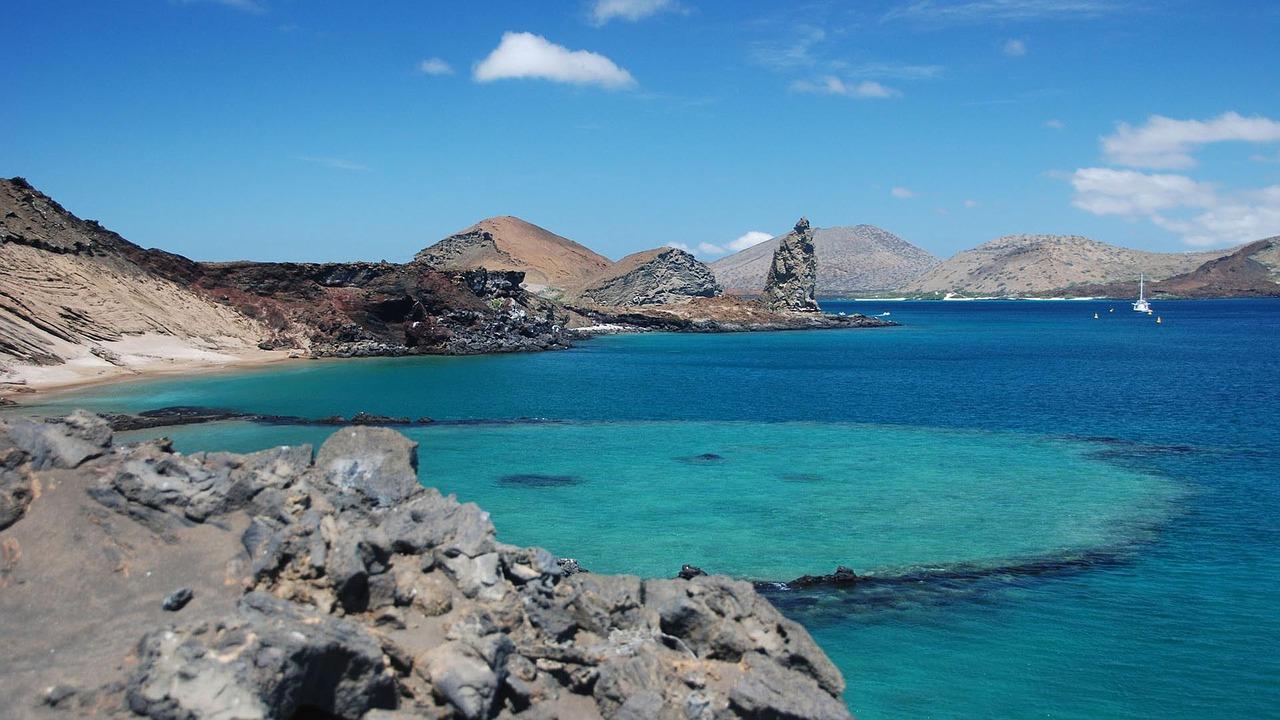Ecuador is on alert after its navy discovered a fleet of more than 200 Chinese fishing vessels near the Galápagos Islands.
The famous archipelago, located more than 600 miles off Ecuador’s coast, helped inspire Charles Darwin’s theory of evolution and is home to the second-largest marine reserve in the world. Ecuadorian officials worry that the Chinese fleet will capture fish that wander out of the formal boundaries of the marine reserve, threatening the balance and diversity of one the Earth’s most important ecosystems.
“Galápagos is the jewel of the crown of this planet,” says Yolanda Kakabadse, Ecuador’s former minister of the environment. “It is a site that not only hosts the most incredible species that are not found in other parts of the world, but it’s also a nesting place. It is a place that reproduces several species that guarantee, in the medium and long term, the food security that this planet deserves and needs. So it is a site that needs protection.”
Related: Humans are damaging the fragile Galápagos ecosystem. Maybe coffee can help save it.
Ecuador has been protecting the Galápagos for six or seven decades, Kakabadse says. It works to preserve it as a place for science and as a conservation marine protected area.
“The Galápagos should be the last place on Earth to be affected by irresponsible actions of any sort,” she says. “Tourism needs to be sustainable, fishing needs to be sustainable, and any other economic activity, if we want to survive. … It cannot be threatened as it is now.”
Kakabadse, who first encountered the Galápagos over 50 years ago, says fishing practices and climate change are already affecting the protected area’s species. “It is not as intact as it was 50 years ago,” she says. “You can already see that birds and marine species are behaving differently and are not as they were several decades ago.”
“The fishing sector as a whole has to develop even stricter guidelines,” she says. “Not every fishing fleet or every country has adopted the criteria that are absolutely necessary to [ensure] that we keep on having fish forever after. There are several countries that fish in the wrong season, with the wrong tools, at the wrong size. And what does that mean? That we are not giving the species the necessary time to grow, to reproduce and to continue in the same numbers that we used to have.”
Ecuador and China have begun negotiations about the fleet, which Kakabadse hopes will bring more clarity to the situation. The Minister of Foreign Affairs of Ecuador is talking to the Chinese government to see how they can collaborate to protect the islands. She hopes some Ecuadorian observers can visit the ships in order to ensure that the amount and the size of the fish being caught and the tools being used all meet international guidelines.
Related: With no-fishing zones, Mexican fishermen restored the marine ecosystem
The next Conference of the Parties to the Convention on Biodiversity is in China, Kakabadse notes, which means that China “is surely intending to protect its image and protect its interests in being one of the strongest partners of the convention of biodiversity, not only within China but around the world. So that is a plus, in every sense.”
“My hope is that China becomes a partner of Ecuador and helps us in the protection efforts of the Galápagos, in the economic zone of Ecuador and in global marine resources as a whole,” Kakabadse says.
The Ecuadorian government is taking steps to prevent situations like this in the future, she adds. It is working with other countries of the South Pacific Coast — including Chile, Peru and Colombia — because they all face similar challenges.
“I think we all need to have a common strategy,” Kakabadse says. “In this decade, [when] we want to have 30% of the marine areas of the world protected by 2030, it is a beautiful challenge to meet, and it is a wonderful opportunity to discuss and agree with the other countries around the world which other marine areas need to be protected.”
This article is based on an interview with Aynsley O’Neill that aired on Living on Earth from PRX.
Our coverage reaches millions each week, but only a small fraction of listeners contribute to sustain our program. We still need 224 more people to donate $100 or $10/monthly to unlock our $67,000 match. Will you help us get there today?
